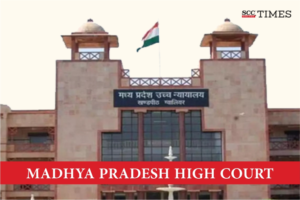Madhya Pradesh High Court: In a bail application filed under Section 439 CrPC (Section 483 of the Bharatiya Nagarik Suraksha Sanhita, 2023) and Section 45 of the Prevention of Money Laundering Act, 2002 (PMLA), a single-judge bench of Prakash Chandra Gupta, J., held that the applicant’s arrest violated Section 19 of PMLA, and the twin conditions under Section 45 of PMLA were not satisfied and granted bail on the grounds of procedural non-compliance and lack of substantive evidence.
In the instant matter, a FIR registered on 16-06-2023 against the applicant and others for alleged offenses under Sections 417, 420, and 120-B of the Penal Code, 1860 (IPC). The applicant is accused of fraudulently obtaining import authorizations for poppy seeds through benami entities, thereby violating guidelines of the Department of Revenue, Ministry of Finance.
The Enforcement Directorate alleged that the proceeds of crime amount to ₹141.8/- crores connected to money laundering under Sections 3 and 4 of the PMLA. The applicant was arrested on 03-10-2024, but the Enforcement Directorate admitted to not summoning him or recording his statements before arrest.
The applicant contended that his arrest violated Section 19 of PMLA due to non-recording of written reasons for arrest. It was argued that the Enforcement Directorate relied primarily on statements of co-accused, which are inadmissible as substantive evidence. It was contended that no material evidence or records were gathered from the licensing authority to support the allegations of fraud. The applicant cited Prem Prakash v. Union of India, 2024 SCC Online SC 2270 and Pankaj Bansal v. Union of India, 2023 SCC Online SC 1244, which emphasised on the compliance with procedural safeguards under PMLA before arrest and admissibility of evidence.
On the other hand, the Enforcement Directorate contended that conditions under Section 45 of PMLA must be satisfied before granting bail. It was contended that the Enforcement Directorate collected evidence linking the applicant to money laundering activities. However, the Enforcement Directorate admitted procedural lapses, including no custodial interrogation or prior summons.
The Court noted that the Enforcement Directorate neither summoned nor recorded the applicant’s statement prior to arrest. The Court stated that statements of co-accused under Section 50 of the PMLA, made while in custody, are inadmissible against the applicant. The Court noted that the Enforcement Directorate’s findings of guilt was based on inadmissible statements of co-accused, with no independent corroboration from licensing authorities or other substantive evidence. The Court stated that non-compliance with Section 19 PMLA undermines the legitimacy of the arrest.
“When an accused is in custody under PMLA irrespective of the case for which he is under custody, any statement under section 50 of PMLA to the same investigating agency is inadmissible against the maker. Furthermore, the arrest should be rational, fair and as per law and shall not be merely based upon guilt of accused established from inadmissible evidence.”
The Court stated that no evidence indicated a likelihood of the applicant tampering with evidence or committing further offenses. The Court granted bail, considering procedural lapses and lack of substantive evidence, on the conditions that —
-
The applicant furnishes a personal bond of ₹5,00,000 with two sureties.
-
Comply with Section 480(3) of Bharatiya Nagarik Suraksha Sanhita, 2023, i.e., attend court hearings as required, co-operate with the investigation and avoid committing similar offenses.
[Asif Hanif Thara v. Enforcement Directorate, 2024 SCC OnLine MP 7379, Decided on 19-10-2024]
Advocates who appeared in this case :
Shri Sidhharth Agrawal, learned Senior Advocate with Shri Manu Maheshwari, Ms. Smriti Sinha, Ms. Radhika Subhash, Ms. Arshiya Ghose and Shri Ritesh Kumar Sharma, Counsel for the Applicant
Shri Himanshu Joshi, learned Deputy Solicitor General and Shri Dilip Singh Shaktawat, Asst. Directorate, Counsel for the Enforcement Department

